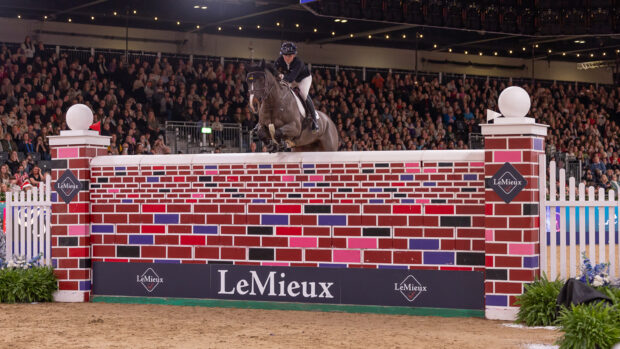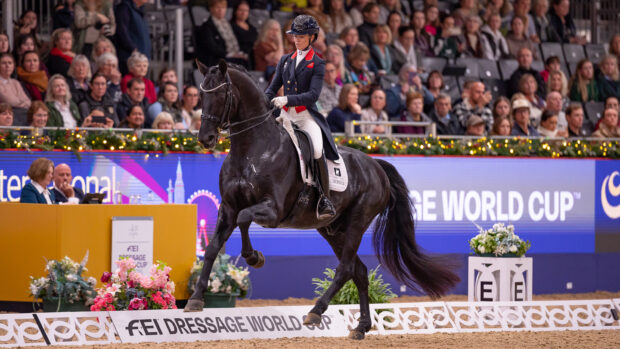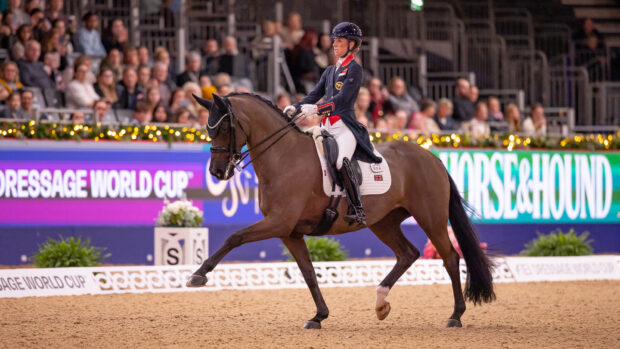A blind dressage rider and the founder of Stallion AI Services conquered Mount Kilimanjaro, all 5,895m of it, in an “absolutely incredible” experience that will help save animal species from extinction.
Verity Smith and Tullis Matson were part of a group that topped off their six-day hike to Kilimanjaro with a nine-hour climb to the summit – followed by the six hours it took to get down. The challenge was in aid of charity Nature’s SAFE, the biobank set up by Tullis to process and store skin and reproductive cells from endangered species, which can then be used in regeneration of animals and restoration of species.
“It was an absolutely incredible trip in so many ways,” Tullis told H&H. “I know lots of people do it but my god, it was so much more difficult than we’d thought. The lack of oxygen at that altitude; tying your shoelaces or doing up the tent was exhausting, everything froze up there, you couldn’t speak as you were so exhausted, just concentrating on putting one foot in front of the other. We were four broken people – but it was incredible. It was so hard but we raised over £50,000, the fact we did that gives you the elation.”
Tullis said he had planned to climb Kilimanjaro over four years ago but the trip was postponed by Covid. He tries to complete a major fundraising event every year and one of the trustees came up with this idea for 2024.
He paid tribute to the “inspirational” Verity, who is an ambassador for Nature’s SAFE as well as an international dressage rider who has represented Britain in para dressage, and competes in able-bodied sport up to inter I.

In an interview with Tullis after the climb, she said: “It was tougher than I thought.
“I’m fit and have good core strength, as most riders do, but it was really difficult. But the balance and core strength you have on a horse really helped.
“I felt like Kilimanjaro was a bit like an untamed mare; I had to be kind to her and she’d be kind to me, and listen to what was beneath my feet; in riding I listen to what’s beneath my seat.”
Verity said one interesting aspect of the climb for her was the silence; at the base, she could hear the “soundscape” of the environment; the monkeys and birds, but this faded as they climbed.
“It was like the world went mute,” she said. “It had gone silent and it was like walking on to an alien planet. The journey was tough mentally; when you can see, you can distract yourself, keep your head up, look around but I don’t have that. So as the world got more silent, my brain got more internalised and I had to really focus. At one point, I felt like I had my old guide dog with me; he’s passed away but I felt he was there and got quite teary.”
But they all made it to the top, and back, although they all felt the effects.
“We all summited, which is incredible, all battled our own demons and maladies,” Verity said.
“It’s much easier on a horse; give me a horse and a dressage arena any day! I saw Kilimanjaro before I went completely blind, and never thought I’d get to summit that mountain. But we did it.”
Tullis added that Nature’s SAFE is looking to set up biobanking in Africa, which was part of the reason for the trip. But it has also been involved nearer home, in helping hedgehogs, for example.
“And we all love hedgehogs,” he said. “It’s very exciting.”
You may also be interested in:

Equine breeding tech could save wild animals from extinction
“I feel incredibly honoured to be able to do this. I absolutely love it”

How a cloned Przewalski’s foal could help save species from extinction *H&H Plus*

Subscribe to Horse & Hound magazine today – and enjoy unlimited website access all year round




